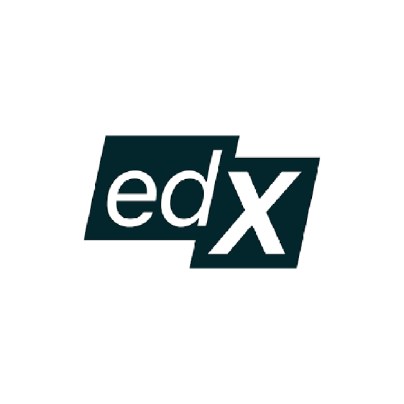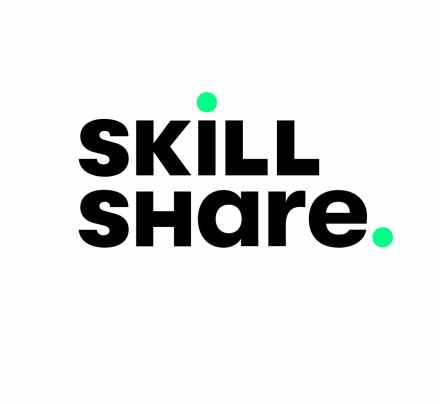
We may earn revenue from the products available on this page and participate in affiliate programs. Learn More ›
While online courses have been around since the early years of the internet, the ability for one to take classes from the comfort of their home has never been greater, thanks to various online course platforms. Serious students can complete entire bachelor’s degree programs online or earn certifications to advance their skills. Hobbyists can pursue interests in cooking, tennis, or writing with online classes taught by celebrities and experts in their fields.
But while there are many online course platforms, not all offer quality courses, and no two platforms are exactly alike. Here, we’ll review what one will want to consider while identifying some of the best online course platforms on the web.
- BEST OVERALL: Udemy
- BEST FOR ADVANCED LEARNING: edX
- BEST SUBSCRIPTION: Skillshare
- BEST FOR INSTRUCTORS: Thinkific
- ALSO CONSIDER: MasterClass

What to Consider When Choosing One of the Best Online Course Platforms
There’s a lot to consider when choosing an online course platform. Some platforms cater to students looking to explore a new hobby, while others provide material for serious students who are seeking college credit or professional certifications. Ahead, learn about these factors and others students will want to consider when searching for the best online course platform.
Creating vs. Taking Courses
Online course platforms serve as arenas for students to learn new topics. However, many online learning platforms also serve as selling platforms for instructors’ courses. Those passionate and knowledgeable about certain topics can create courses to upload and sell through online learning services. Some platforms that sell classes individually may be more attractive to instructors, as they’ll get more direct profit. However, they’re often on the hook to provide refunds for individually purchased courses. It’s also important to note that online learning platforms don’t provide the software and resources to create the courses—instructors will have to resort to specific programs to design course materials.
Areas of Learning
Online learning platforms vary in the courses they offer. While some focus on more technical or trade classes, others may offer more material on business or humanities. When selecting an online course platform, students will want to select an option that offers the area of coursework on which they would like to focus. If there are multiple areas of learning a student is interested in, it may make sense for students to choose an option that offers all the classes they desire—as opposed to using multiple platforms to meet their needs (especially if the site uses subscription-based pricing).
Use Case
Online course platforms vary in the types of students they are aimed at. Some offer classes that cater to those who may be looking to expand their skills to suit a hobby that interests them, while others offer coursework that may fulfill credits required to meet the demands of a certain vocation.
Those looking to earn a certification or degree will want to research the platform to ensure the courses meet specific certification requirements. Classes designed to prepare one for certification are often considerably more expensive than those designed for the casual learner. If the student does not need course credits or an accredited program, it may make sense to look for a more affordable option.
Credits, Degrees, and Certifications Available
While many online course platforms offer classes for casual learners, some offer courses for serious students who are planning to use their education to further their careers or enter the workplace. These online course platforms allow students to take online training that helps them earn certifications for specific skills within an industry or vocation. Some online learning platforms even allow a student to pursue a bachelor’s or master’s degree entirely online through fully accredited universities. When students are assessing an online course platform, they will want to consider what certifications and college credits are offered. Since prospective employers often look at an applicant’s education when considering them for a position, it’s also crucial that students consider the reputation of the online school before enrolling.
Pricing
Online class platforms use various pricing structures to meet the needs of different students. Some platforms charge by class, while others may offer an annual subscription that gives students access to all course content on the site. The former is ideal for students who need to complete specific classes to achieve a certification or are looking to earn college credits. Individual pricing may also be beneficial for hobby learners who don’t want to make the financial commitment of paying for a subscription when they’re not sure if they’ll have the time to take advantage of more than one class on the platform.
A subscription-based membership is a good choice for those who may be interested in taking a variety of different classes. Since subscription-based models often require users to commit to a month- or year-long membership, students will want to choose a platform that offers numerous classes that suit their interests. Students who are unsure about how much use they’ll get from a subscription-based online learning platform can also seek out platforms that offer free trials.
Site Popularity
An online course platform’s popularity is key to providing prospective students with information about its courses. Courses with a steady flow of students have more ratings and reviews that students can use to better understand what the course offers, so they can determine if it’s the right choice for them. A popular online course platform is also likely to be more reputable than a learning platform with a small student population.
Site popularity is also crucial for online learning instructors who are looking for a place to sell their classes. A platform that’s popular with many students presents a greater opportunity for teachers to sell their classes than a site with fewer users.
Refund Policy
Refund policies range from 2 weeks to 30 days, allowing students to try out a course to see if it suits their needs without the risk of wasting money. Online platforms with longer refund policies are typically designed for casual students and hobbyists. Sites that offer accredited courses for students seeking certification and college credit typically have shorter cancellation windows. Refund policies may also vary for subscription-based platforms, so it’s wise for students to read up on the policy before providing their credit card information.
User Reviews and Ratings
While online course platforms have descriptions of the classes they offer, they may not always give a complete picture of the course content. As such, user reviews and ratings are crucial tools that allow prospective students to vet a class before enrolling. The best online course platforms enable students to rate the course and leave written reviews after completing a class, allowing prospective students to get objective feedback about course content and the instructor from students who have already taken the course. Platforms with more traffic will typically also have more reviews and ratings for each class. User reviews and ratings also serve as valuable feedback for instructors looking to improve upon or create more courses.
Our Top Picks
The list below includes a mix of some of the top online course platforms for students seeking professional certifications and degrees, casual hobbyists, and teachers looking to reach students.
Best Overall
Udemy
- Areas of learning: Development, business, finance and accounting, IT and software, office productivity, personal development, design, marketing, lifestyle, photography and video, health and fitness, music, teaching and academics
- Credits, degrees, and certifications available: Certificate of completion
- Pricing: Free, $9.99 to $199.99 per course, or $30 per month for Udemy Personal
- Refund policy: Within 30 days for single-course purchase
Pros
- Over 185,000 courses available in a broad range of topics
- Frequent sitewide sales and many individually discounted classes
- Both subscriptions and stand-alone classes available for purchase
- Classes offered in 75 languages
Cons
- Money-back guarantee not included with Udemy Personal subscription
Why It Made the Cut: The sheer breadth of Udemy’s courses, its relatively low prices, and the high volume of students make Udemy a highlight of online learning platforms. Udemy boasts a staggering 185,000 courses in 75 languages covering a diverse range of topics from web development to some of the best online interior design courses. The platform’s class descriptions provide a comprehensive course overview, including price and class length. Udemy reviews and ratings are available for every class on the site. And since Udemy is such a popular platform, most of its courses have thousands of student reviews. Udemy makes its classes available as both stand-alone purchasing options and subscriptions that grant sitewide access (though students will want to note that Udemy only offers refunds for its individually purchased classes). This platform’s classes are also among the most affordable, thanks to sitewide sales that occur at least twice each month.
Best for Advanced Learning
edX
- Areas of learning: Architecture, art, life sciences, business, chemistry, communication, computer science, data analysis, design, economics, education, electronics, earth sciences, engineering, environmental studies, ethics, nutrition, history, humanities, language, law, literature, math, medicine, music, philosophy, physics
- Credits, degrees, and certifications available: Verified professional certificate, bachelor’s degree, master’s degree, college credits (varies by university)
- Pricing: Free or $50 to $300 per course
- Refund policy: Within 2 weeks of payment
Pros
- Wide range of free courses from accredited universities available
- Relatively affordable certificate programs
- Professional boot-camp courses offered through prestigious universities
- Option to earn college credits and degrees online
Cons
- Relatively significant time commitment of several weeks may be required
Why It Made the Cut: edX allows students to earn college credits and certificates for sought-after skills from some of the top learning institutions in the world. Students looking to earn a professional certification or a college degree online can look no further than edX. The online learning platform offers more advanced and intense courses designed to meet the needs of those taking classes to enter into or advance a career. The platform’s course selection is broad, including areas like environmental studies, education, electronics, and computer science. And many of its courses are offered through partnerships with major universities from around the globe, including NYU, Harvard, and UC Berkeley. Students will want to note that these advanced courses typically come with a longer time commitment than other online courses. Differentiating itself from other platforms, edX offers boot-camp courses that allow students to earn university-backed certificates for such in-demand skills as coding, data analytics, and cyber security. Students can pay for access to classes to obtain certifications, credits, or degrees that they can put on their resumes. There is also the option to audit the classes and access course materials for free.
Best Subscription
Skillshare
- Areas of learning: Animation, creative writing, film and video, fine art, graphic design, illustration, music, photography, UI/UX design, web development, business analytics, freelance and entrepreneurship, leadership and management, marketing, lifestyle, productivity
- Credits, degrees, and certifications available: Certificate of completion
- Pricing: $165 per year
- Refund policy: Within 2 weeks of payment
Pros
- Access to all site content for one annual price of $165
- One-month free trial for new users
- Active, engaged student and instructor community
Cons
- Price structure not ideal for hobby learners
Why It Made the Cut: With areas of learning that include writing, photography, and digital design, Skillshare is a great subscription site for those looking to expand their creative abilities. Skillshare offers a robust collection of classes, including graphic design, film, creative writing, and some of the best online sewing classes, and it also has one of the more vibrant student/instructor atmospheres. Students on Skillshare are encouraged to interact with other students, creating a community that enriches the learning experience. However, students will pay more for Skillshare than other subscription-based online course platforms, and users have to commit to an annual membership, but the quality of the classes may make the additional cost worth it. Skillshare is particularly focused on creative fields, with classes in writing, design, animation, photography, and film taught by experienced instructors, including award-winning authors, illustrators, and animators. Students rate the classes based on whether the course met their expectations, which provides good insight for prospective students.
Best for Instructors
Thinkific
- Areas of learning: N/A
- Credits, degrees, and certifications available: N/A
- Pricing: Free, $99 per month for Start plan, $199 per month for Grow plan, $499 per month for Expand plan
- Refund policy: No refunds
Pros
- Easy-to-use design interface
- Convenient built-in marketing and sales tools
- Diverse community-engagement features
Cons
- Relatively high monthly cost
- No refunds
Why It Made the Cut: Robust marketing tools and a wide variety of creation tools make Thinkific one of the best ways for instructors to create and monetize their classes. While many options allow instructors to reach students with their online courses, few offer the breadth of marketing tools that Thinkific does. Thinkific does not serve as a place where students go to take courses—its goal is to help teachers create and market their online courses. The platform offers a class creator that allows instructors to design the look and feel of their course site. Teachers can also incorporate features such as bulletin boards, live events, profiles, and comments, making it easier for teachers to connect with students. Thinkific also offers powerful marketing tools that help teachers maximize their ability to reach and enroll students, helping them to maximize the return on their classes. Thinkific pricing is steep, but these powerful features make it worth it. It is important to note that Thinkific does not offer refunds, so teachers will want to spend time researching what Thinkific has to offer before committing.
Also Consider
MasterClass
- Areas of learning: Food, design and style, arts and entertainment, music, business, sports and gaming, writing, science and tech, home and lifestyle, community and government, wellness
- Credits, degrees, and certifications available: Certificate of completion
- Pricing: $180 per year for Individual plan, $240 per year for Duo plan, $276 per year for Family plan
- Refund policy: Within 30 days of purchase
Pros
- Access to all site content for one annual price
- Classes taught by renowned professionals
Cons
- Price structure not ideal for hobby learners
Why It Made the Cut: MasterClass stands out from other online learning platforms with a stellar lineup of celebrity teachers. True to its name, MasterClass delivers courses taught by masters in their fields. The courses cover the gamut: cooking with Gordon Ramsay, acting with Samuel L. Jackson, tennis with Serena Williams, and science with Neil deGrasse Tyson. MasterClass features more than 150 classes designed to be completed over a 30-day period, making them ideal for evening and weekend casual students. MasterClass bases its fees on annual subscriptions for individuals, couples, and families, and users can access all of the site content for one annual fee. This platform offers a 30-day refund for customers who aren’t satisfied, and interested students can read more about the platform through our MasterClass review.
Our Verdict
With its thousands of course offerings, affordable tuition, and large user base, Udemy is the best all-around online course platform. Those looking for a course platform that offers professional certifications and degree programs will want to consider edX, which partners with some of the most reputable higher learning institutions in the world to offer its classes.
How We Chose the Best Online Course Platforms
We based our selections of the best online course platforms on various factors. Prospective students should be able to learn as much as possible about an online course before committing to it. Thus, we chose established platforms with high student traffic, enabling students to use user ratings and reviews to help them select the right courses. Those who use online course platforms include casual learners and those looking to take classes for professional purposes, so we chose platforms for serious students and those for hobbyists. We also looked for platforms that offered different payment options, from free, individual classes for purchase and subscription-based models. We gave awards based on the platforms’ strengths and unique features.
Before You Use One of the Best Online Course Platforms
Before signing up for online classes, students will want to know what to expect. Students looking to earn college credit or certification through online classes should not expect the courses to be easy just because they’re not in person. Often, online classes can be more challenging than in-person classes as they require the student to be self-motivated and learn content with little to no face-to-face support from a teacher.
Students who plan to take an online class will need to make sure they have a tablet or computer and an internet connection that’s fast enough to create a reliable connection for streaming video. Students using online courses to start a career will want to remember that employers may be more skeptical of an online degree. With that in mind, students will want to choose a program that has a well-established reputation.
Hobbyists looking at online courses will want to be aware that many online courses are not accredited and that any higher authority does not verify the information. Knowing this, students may want to research the instructor’s credentials to ensure that the course is a good source of information.
Cost of Using One of the Best Online Course Platforms
Students can expect a broad range of courses ranging from free to as much as $300. Courses that include a professional certification or college credits are among the most expensive options. Online course platforms that use a subscription model with annual costs ranging from $165 to $180 per year, which gives customers access to all of the site’s class content.
The Advantages of Using One of the Best Online Course Platforms
Online courses offer many benefits for serious students and hobbyists, such as giving students the flexibility to complete a course on their own time and eliminating the need to commute to a local college or learning center. These courses are also often self-paced and don’t have live lectures, so students don’t need to make themselves available at a set time. In addition to flexible scheduling, online courses are also typically much more affordable than in-person courses. Since online courses don’t limit students to what’s available at their local institutions, students have a much broader range of course types to choose from. For hobbyists, online courses offer the ability to learn a new skill they may not otherwise be able to pick up.
- Flexible scheduling
- No need to commute
- More affordable than in-person courses
- Broad range of courses available
FAQs
It’s important to understand the limitations of online courses as well as their benefits. Ahead, learn more about the challenge of taking an online course along with other information about these types of courses.
Q. What are the features to consider when comparing online course platforms?
When comparing online course platforms, students will want to consider what material the platform offers and whether the courses are designed for hobbyists or professional students. Students will also want to consider the cost of the courses along with reviews and ratings.
Q. What are the benefits of taking online courses?
The main draws of online courses are the convenience, flexibility, and course options. Students who choose to take online courses can complete the coursework independently from the comfort of home. Since the courses are online, students can find a much broader range of course types than they would at a local college.
Q. How can you make an online course effective?
When creating an online course, there are several things an instructor will want to keep in mind. The instructor should understand their audience and tailor the content to its needs. The course should also be well organized and broken up into small sections that students can complete in multiple sessions over an extended period. An online course should also be dynamic, incorporating video and audio clips and visual content. Course content should also be easily accessible, eliminating the need for students to hunt for course material on the site.
Q. What are the limitations of online classes?
While online courses can cover a broad range of course types, there are limitations to what an online course can offer. Not all courses are teachable online. Certain trades that require hands-on training, such as auto mechanics or welding, cannot be taught entirely online. While students can still get teacher feedback, it is typically more limited with an online class versus an in-person class.
Q. What are the challenges of online learning?
Online classes present some challenges that students should be aware of before enrolling. Students must be self-disciplined enough to engage in the lessons even though they lack interaction with teachers and other students. For this reason, online learning can also feel isolated without a sense of a classroom community. If students have questions, it’s much more difficult to get help from a teacher. Online learning is also more susceptible to technical problems as it requires a reliable high-speed internet connection.







